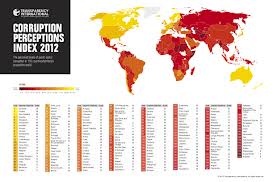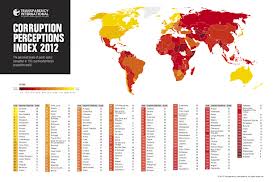 In the paper Decentralization and Corruption: New Cross-Country Evidence, Maksym Ivanya and Anwar Shah present empirical evidence of the impact of decentralization reforms on corruption for a sample of 158 countries. In the paper, decentralization is defined as the empowerment of local governments, (not as decision making at sub-national levels as other literature on the subject have done). Corruption is seen as “the abuse of public office for private gain or exercise of official powers against public interest.”
In the paper Decentralization and Corruption: New Cross-Country Evidence, Maksym Ivanya and Anwar Shah present empirical evidence of the impact of decentralization reforms on corruption for a sample of 158 countries. In the paper, decentralization is defined as the empowerment of local governments, (not as decision making at sub-national levels as other literature on the subject have done). Corruption is seen as “the abuse of public office for private gain or exercise of official powers against public interest.”
The study conducts econometric regression analysis using measures of decentralization and corruption to test for the impact of decentralization. The regression results conclude that decentralization, when defined as moving government closer to the people by empowering local governments (LGs), has a significant negative effect on corruption. Empowering LGs reduces the frequency of bribery and the amount of bribes paid to government officials as well. An increase in decentralization of LGs, which means extending their own expenditures and revenues, reduces the average probability of a bribe being paid. However, decentralizing expenditures alone is not sufficient to have a significant impact on the corruption within a government; increasing a government’s own revenues, taxation autonomy and financing it with unconditional formula-based transfers is also essential.
The authors also tested for whether political decentralization matters—specifically whether politics matter when local finances are concerned—in other words, they tested if it makes a big difference whether local money, no matter how autonomously obtained, is spent by someone who is elected by local people or by someone who is appointed from above. The results concluded that political decentralization is an important factor that affects corruption even if fiscal decentralization is controlled for. The availability of direct democracy mechanisms in local governance generally improves the incidence of corruption, both independently and in interaction with fiscal decentralization.
The study also tests whether a “voice” or “exit” argument for decentralization is more dominant. The voice argument takes the approach that by decentralizing government and bringing power closer to people, government becomes more controllable and accountable. Furthermore, decentralized local governments are able to compete with other governments and attract mobile residents or businesses. The exit argument says that if residents or businesses are not satisfied with integrity at their current jurisdiction, they can move to another one. The regression analysis does not find any evidence to support the notion that decentralization works through an exit channel. Thus, voice, or political accountability, seems more important in combating corruption than exit options made available through competition among jurisdictions.
The authors of the study present their conclusions with a grain of caution. Their findings have limitations because the causes of the impacts of decentralization have not been established. Another limitation exists because of scarce data, which may cause the results to have measurement error and may cause bias in the decentralization coefficient.
Download the paper from here


Leave a Reply
You must be logged in to post a comment.